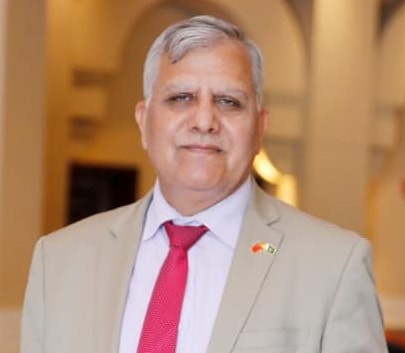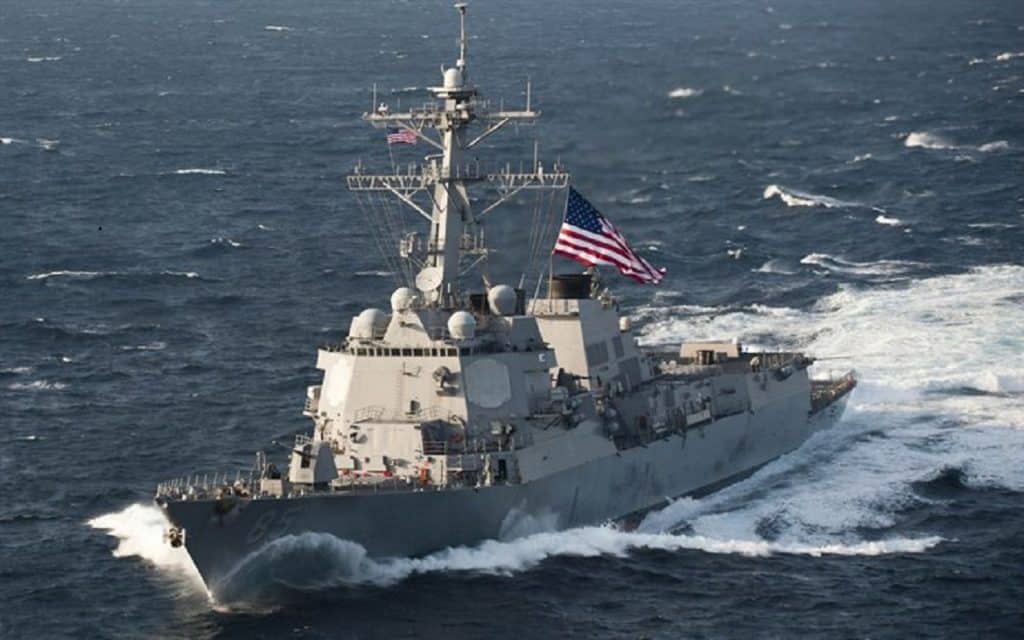By Prof. Engr. Zamir Ahmed Awan
Henry Kissinger once said that “it may be dangerous to be America’s enemy, but to be America’s friend is fatal.”

The U.S. Navy announced that one of its warships had conducted a freedom of navigation patrol in Indian waters without New Delhi’s prior consent. An unusual statement by the commander of the Seventh Fleet said their ship entered Indian waters to uphold “rights and freedoms” recognized in international law by “challenging India’s excessive maritime claims.”
A brief statement by the U.S. fleet’s public affairs office said that “on April 7, USS John Paul Jones asserted navigational rights and freedoms approximately 130 nautical miles west of the Lakshadweep Islands, inside India’s exclusive economic zone (EEZ), without requesting India’s prior consent”. The note claimed that the move was “consistent with international law.” However, it also mentioned that “India requires prior consent for military exercises or maneuvers in its EEZ or continental shelf.” Explaining why the Fleet did not seek India’s consent, the statement said the Indian “claim (is) inconsistent with international law.” “This freedom of navigation operation upheld the rights, freedoms, and lawful uses of the sea recognized in international law by challenging India’s excessive maritime claims,” the U.S. Navy declared.
“The Government of India’s stated position on the United Nations Convention on the Law of the Sea is that the Convention does not authorize other States to carry out in the Exclusive Economic Zone and on the continental shelf, military exercises or maneuvers, in particular those involving the use of weapons or explosives, without the consent of the coastal state” the spokesman said. Also, the former Chief of India’s Naval Staff Arun Prakash questioned why the U.S. announced the operation in the waters of an apparent ally.
The navies of India and the United States carry out large-scale exercises each year that now involve Japan and Australia. The four countries have formed an informal security grouping called the Quad to counter and contain China.
Although, India reacted scarcely by expressing concern over the move, but did not clarify if the U.S. warship was challenged during its passage. India is a major defense partner with the U.S. and a member of the “Quad” along with Australia and Japan with the U.S. Having signed a series of defense agreements, India was over-confident and over-trust in America.
India is a beneficiary of U.S. political and diplomatic support as well as economic and financial assistance. Prime Minister Modi has developed a personal friendship with ex-President Donald Trump and was expecting very high. However, after elections 2020, India is facing tough time from Joe Biden Administration.
Secretary of Defense, during his recent visit to India, raised the sheer concerns of Human Rights violations and questioned religious freedom in India. Joe Biden Administration is not satisfied with the rapid deterioration of democratic values in India and growing intolerance and extremism.
India may not want to lean toward the U.S. wholly but tries to seek only gains from both the U.S. and Russia, which will inevitably affect the U.S. attitude toward its military cooperation with India. India is unwilling to accept a secondary role in US-India relations, but the U.S. will not allow India to sit with it on an equal footing. The U.S. wanted to keep its supremacy and upper hand always.
India does not want to be attached to the U.S. chariot because this will deal a heavy blow to India-Russia relations. Russia has many cards to play; if it develops ties with Pakistan, India will face more challenges in the South Asian subcontinent, not to mention that deteriorating India-Russia ties will give it less maneuvering space in major power politics.
It is visible that military cooperation between the U.S. and India has passed its periodic peak and bilateral relations face pressure in the foreseeable future.
It is true that if you have American friends, you do not need enemies. Pakistan was a close ally with the U.S. during the cold war and a frontline state during its war on terror. Pakistan protected American interests in the region for almost Seven decades. Pakistan guaranteed that American achieved all its strategic goals in this region. But unfortunately, Pakistan was one of the countries hit hard by American sanctions. Some of the sanctions were cruel, and at the time when Pakistan was passing a critical stage, and deserved help from friends.
Author: Prof. Engr. Zamir Ahmed Awan, Sinologist (ex-Diplomat), Editor, Analyst, Non-Resident Fellow of CCG (Center for China and Globalization), National University of Sciences and Technology (NUST), Islamabad, Pakistan.
(The views expressed in this article belong only to the author and do not necessarily reflect the editorial policy or views of World Geostrategic Insights).







